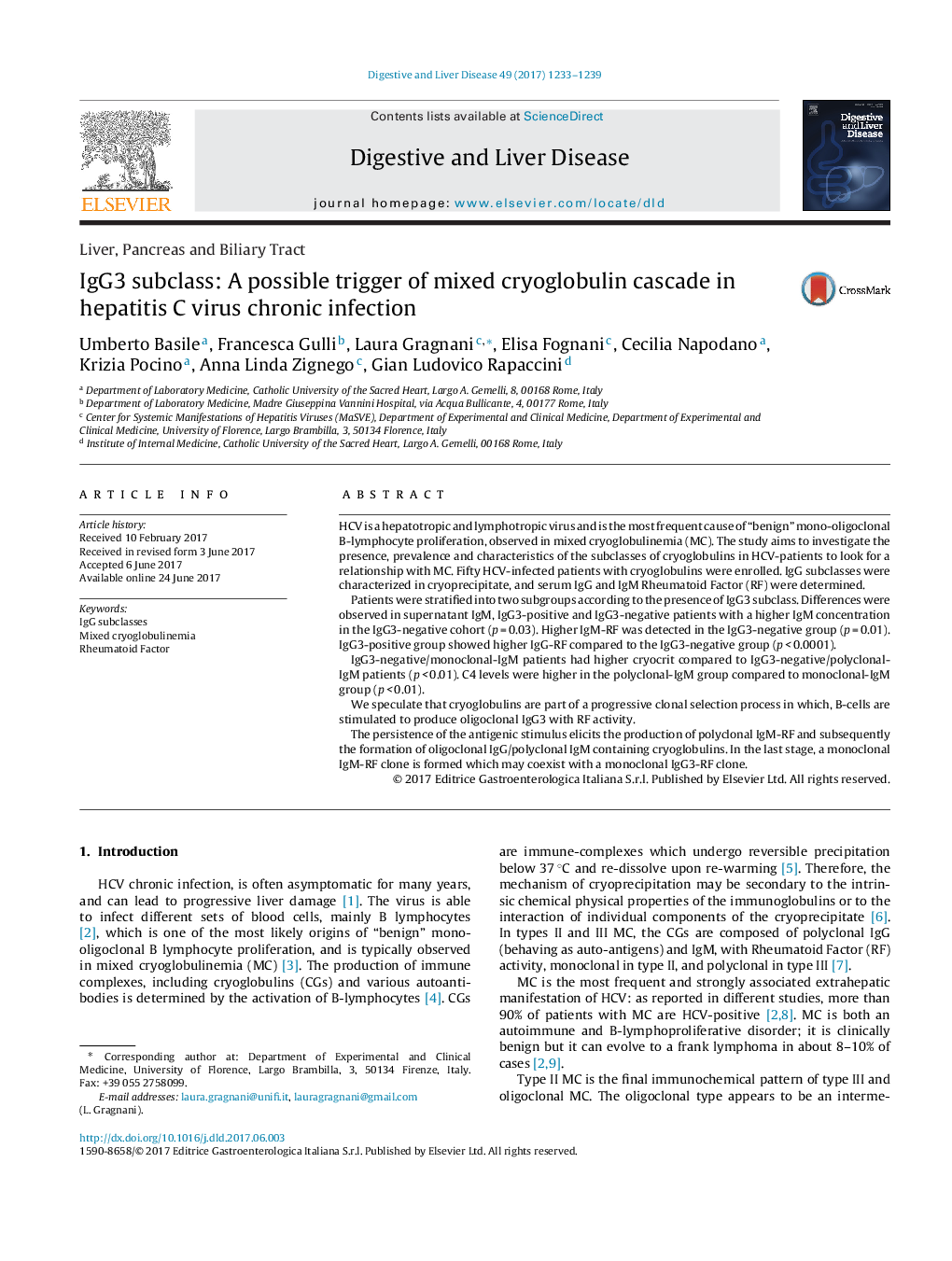| Article ID | Journal | Published Year | Pages | File Type |
|---|---|---|---|---|
| 5655247 | Digestive and Liver Disease | 2017 | 7 Pages |
HCV is a hepatotropic and lymphotropic virus and is the most frequent cause of “benign” mono-oligoclonal B-lymphocyte proliferation, observed in mixed cryoglobulinemia (MC). The study aims to investigate the presence, prevalence and characteristics of the subclasses of cryoglobulins in HCV-patients to look for a relationship with MC. Fifty HCV-infected patients with cryoglobulins were enrolled. IgG subclasses were characterized in cryoprecipitate, and serum IgG and IgM Rheumatoid Factor (RF) were determined.Patients were stratified into two subgroups according to the presence of IgG3 subclass. Differences were observed in supernatant IgM, IgG3-positive and IgG3-negative patients with a higher IgM concentration in the IgG3-negative cohort (p = 0.03). Higher IgM-RF was detected in the IgG3-negative group (p = 0.01). IgG3-positive group showed higher IgG-RF compared to the IgG3-negative group (p < 0.0001).IgG3-negative/monoclonal-IgM patients had higher cryocrit compared to IgG3-negative/polyclonal-IgM patients (p < 0.01). C4 levels were higher in the polyclonal-IgM group compared to monoclonal-IgM group (p < 0.01).We speculate that cryoglobulins are part of a progressive clonal selection process in which, B-cells are stimulated to produce oligoclonal IgG3 with RF activity.The persistence of the antigenic stimulus elicits the production of polyclonal IgM-RF and subsequently the formation of oligoclonal IgG/polyclonal IgM containing cryoglobulins. In the last stage, a monoclonal IgM-RF clone is formed which may coexist with a monoclonal IgG3-RF clone.
